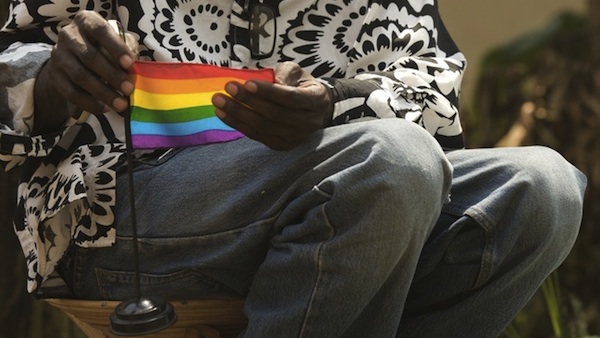Call Me Kuchu Review
There’s courage, and then there’s what the men and women at the center of Call Me Kuchu display.
This exceptional documentary, from directors Katherine Fairfax Wright and Malika Zouhali-Worrall, chronicles the fight for LGBT rights in Uganda where homosexuality is illegal and almost became a capital offense. For these individuals, among them Uganda’s first openly gay man David Kato, leaving the country to escape persecution isn’t an option. If they leave, who will remain to protect those still in the closet or future generations who will try to live as out men and women among violent zealots? But each stays knowing any day, a bigot will end his or her life, and tragically, over the course of Call Me Kuchu, that will be the case for someone.
It’s a rough (but important and rewarding) film to watch because while it’s easy to admire these men and women, they suffer a lot, and there’s little hope in sight. Of course, they’re working tirelessly, but the deck is so stacked against them—a leading newspaper, for example, is publishing the names, pictures, and addresses of “suspected homos” in addition to blaming a terrorist bombing on sexual minorities. We never get the impression their winning over hearts and minds.
Our half dozen main characters are not alone, however, and Call Me Kuchu ultimately uplifts because we see cracks in this seemingly unbreakable ceiling. They take the aforementioned newspaper—Rolling Stone, which is little more than a tabloid—and its horrifying, smug editor to court and win. They find inroads at the United Nations. And even on the religious front, they find an essential ally in the form of Bishop Christopher Senyonjo, who remarks while encouraging his friends to stay strong, “I am free because I know the truth. And I will stand for that truth.” Moving words.
If you find yourself troubled by the film’s setup, its conclusion might overwhelm you. There’s so much raw pain on the screen. I’m not sure I’ll ever forget it, but you see those suffering standing tall eventually, and it’s encouraging. Call Me Kuchu—which derives its title from a slang term meaning “gay”—shines a light on repression of the worst and most dangerous kind. It shows us how little we as citizens of the world sometimes learn from the mistakes of the past. And it’s a heart-wrenching reminder that if you don’t stand for something, you’ll fall for anything.

















One Response to Call Me Kuchu Review